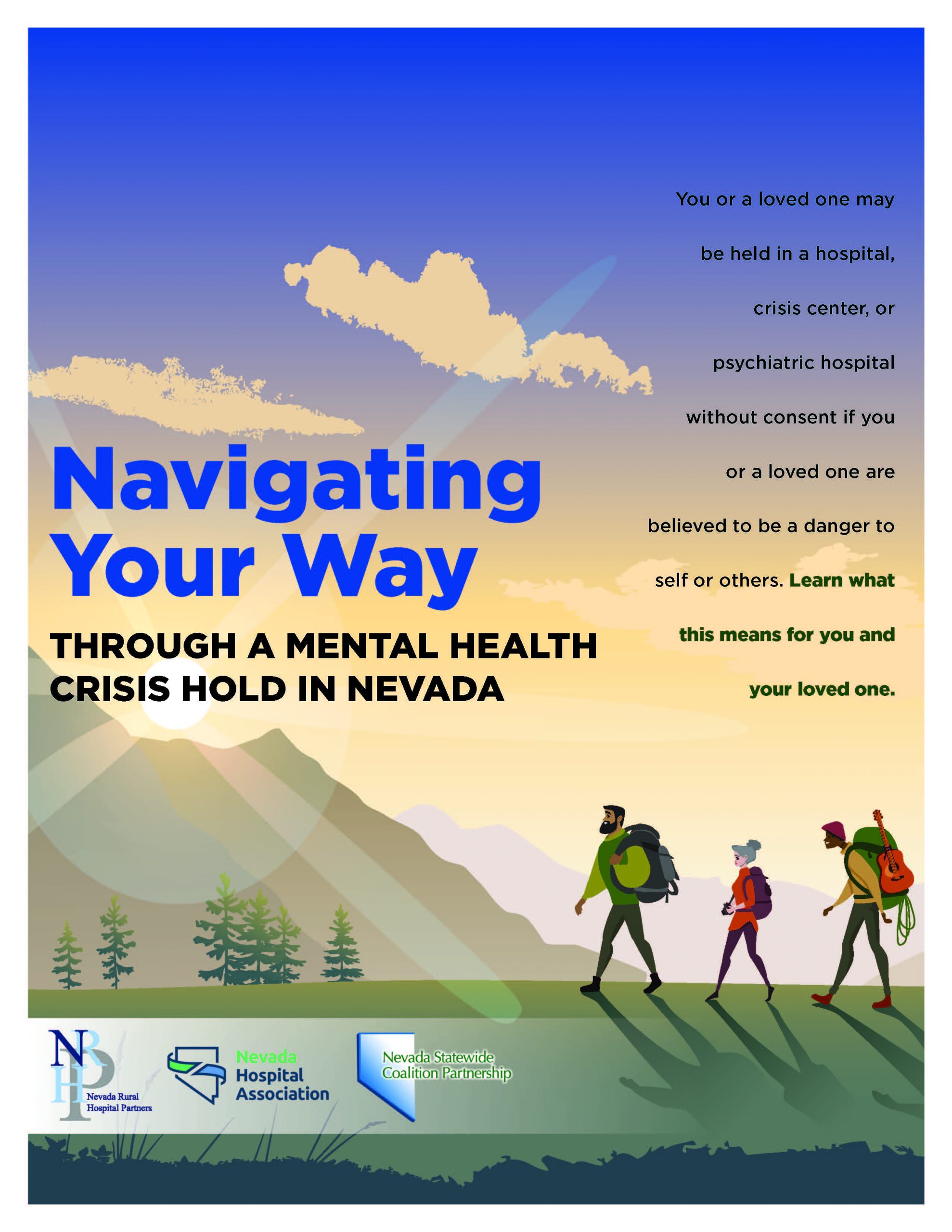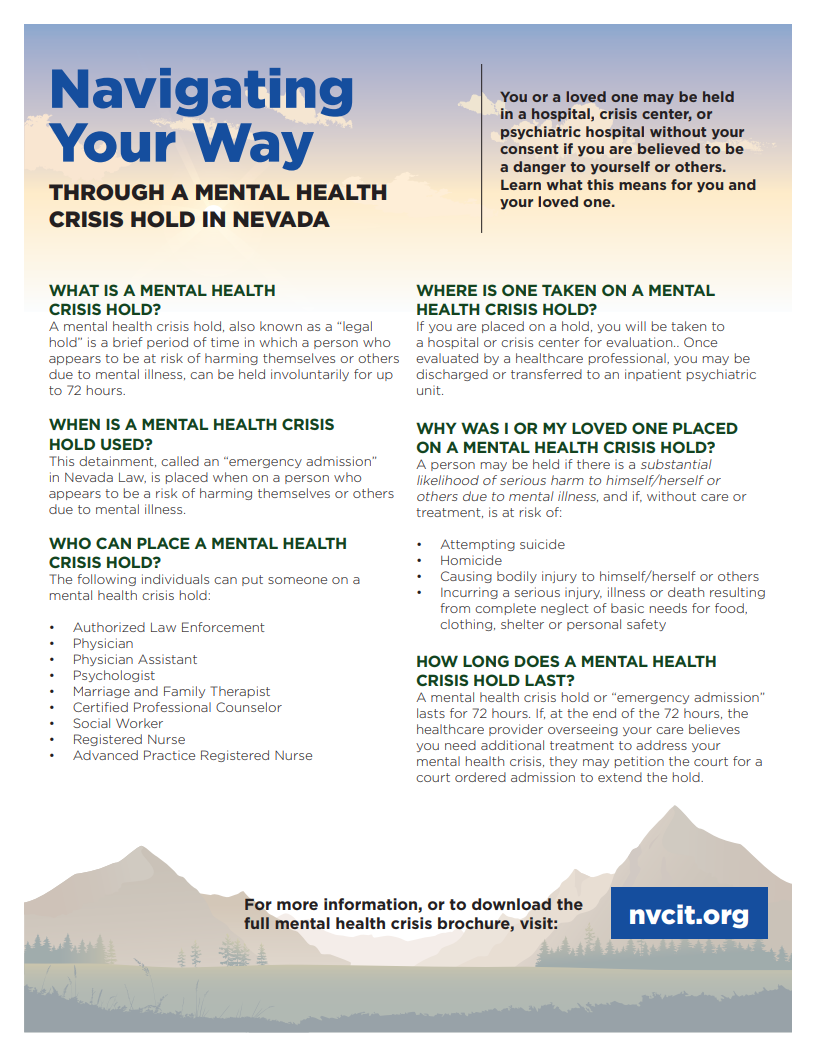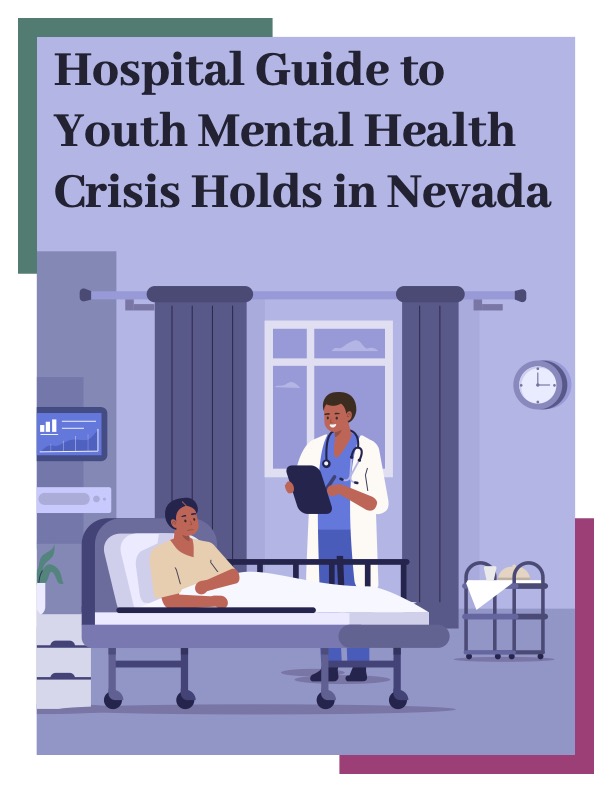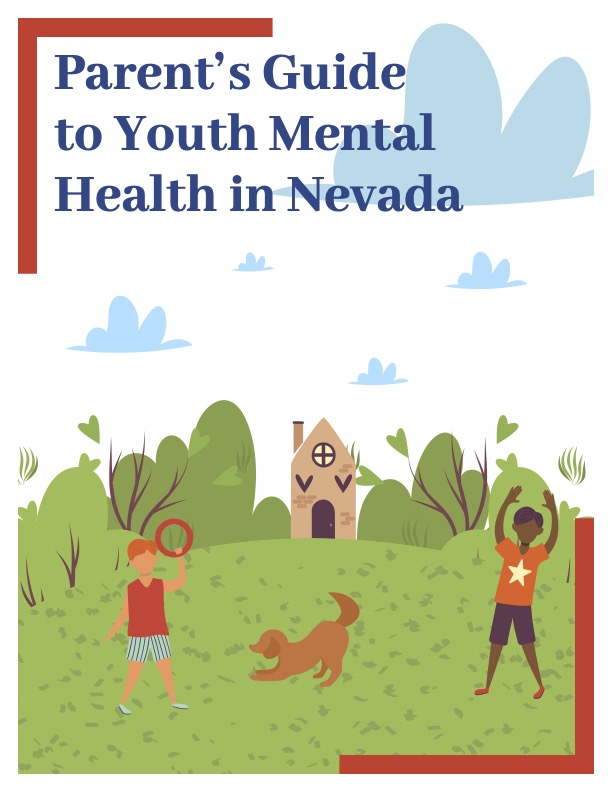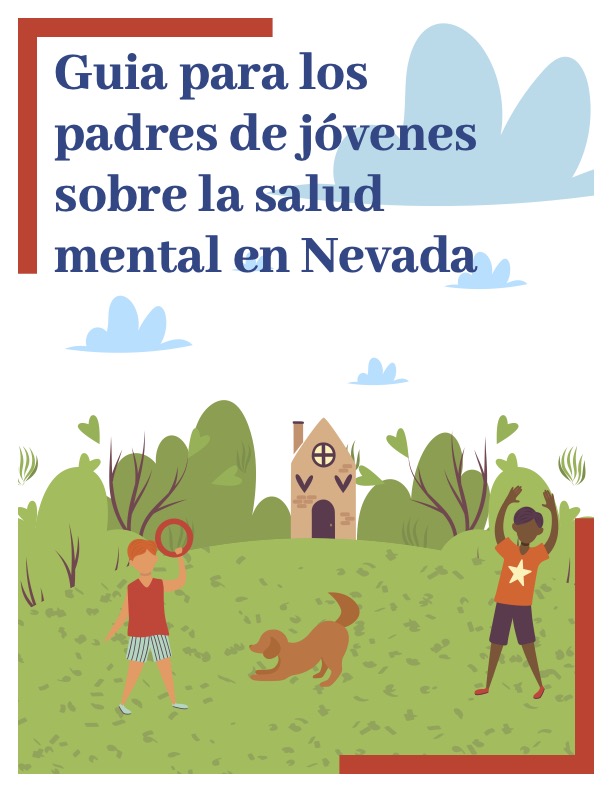Mental Health Crisis Holds (Also known as legal holds)
Overview
Formerly known as a “Legal Hold” or “Legal 2000”, mental health crisis holds are used when a person appears to be in a mental health crisis. This means that they meet criteria for “substantial likelihood of serious harm” to themselves or others due to mental illness. In this situation they may be held involuntarily in a healthcare facility for evaluation, observation, and treatment for up to 72 hours.
Nevada’s mental health crisis hold packet can be found at Nevada Division of Public Behavioral Health:
Adult mental health crisis hold packet: 12k Mental Health Crisis Hold Packet (nv.gov)
Youth mental health crisis hold packet: https://dpbh.nv.gov/uploadedFiles/dpbhnvgov/content/Resources/Mental%20Health%20Crisis%20Hold%20Packet%20Minor-2-2.pdf
For more information on mental health crisis holds, please see the documents below:
If it appears that the mental health crisis will not resolve within 72 hours, a petition must be filed to extend the hold by an authorized healthcare professional in the District Court where the patient resides. Please note, a healthcare professional can decertify a hold prior to the 72 hours ending and also after a petition has been filed with the court.
Specifically, a “person in a mental health crisis” means any person:
- who has a mental illness; and
- whose capacity to exercise self-control, judgment and discretion in the conduct of the person’s affairs and social relations or to care for his or her personal needs is diminished, as a result of the mental illness, to the extent that the person presents a substantial likelihood of serious harm to himself or
A person may be held if, due to a mental illness, they present a “substantial likelihood of serious harm” to himself or herself or others if, without care or treatment, the person is at serious risk of (This includes observed thoughts, behaviors, threats, and planning):
- Suicide
- Homicide
- Causing bodily injury to himself or herself or others
- Incurring a serious injury, illness or death resulting from complete neglect of basic needs for food, clothing, shelter or personal safety.”
What is not considered a mental health crisis:
These issues alone do not qualify an individual for a mental health crisis hold. However, if they are accompanied by mental illness, and it is believed that the mental illness is causing the mental health crisis, a hold can still be placed.
- Epilepsy
- Intellectual disability
- Dementia (i.e. Alzheimer’s)
- Delirium
- Alcohol/drugs (either brief intoxication or dependence/addiction)
Who can initiate the hold?
- A hold can be initiated by an officer, physician, physician assistant, psychologist, marriage and family therapist, clinical professional counselor, social worker or registered nurse.
Nevada’s Mental Health Crisis Hold Framework:
Nevada’s involuntary mental health crisis hold process, described in NRS 433A, involves three different types of admission that can occur when a person appears to be a danger to themselves or others due to mental illness .
- Voluntary admission: An individual experiencing a mental health crisis may be admitted to an inpatient hospital on a voluntary basis.
- Emergency Admission: An individual experiencing a mental health crisis may be admitted to an inpatient mental health hospital for up to 72 hours. A petition must be filed with the court for court ordered involuntary admission at the close of the business on which the 72 hour period ends.
- Court-ordered involuntary admission: If the health provider overseeing the individual’s care believes that they continue to be a danger to self or others during the 72 hour period, the provider can petition the court for court ordered involuntary admission. The court has six business days upon receiving the petition, to schedule a hearing to determine if the individual under emergency admission continues to meet criteria. The court can either order someone into treatment in a hospital (inpatient), or in the community (outpatient).


